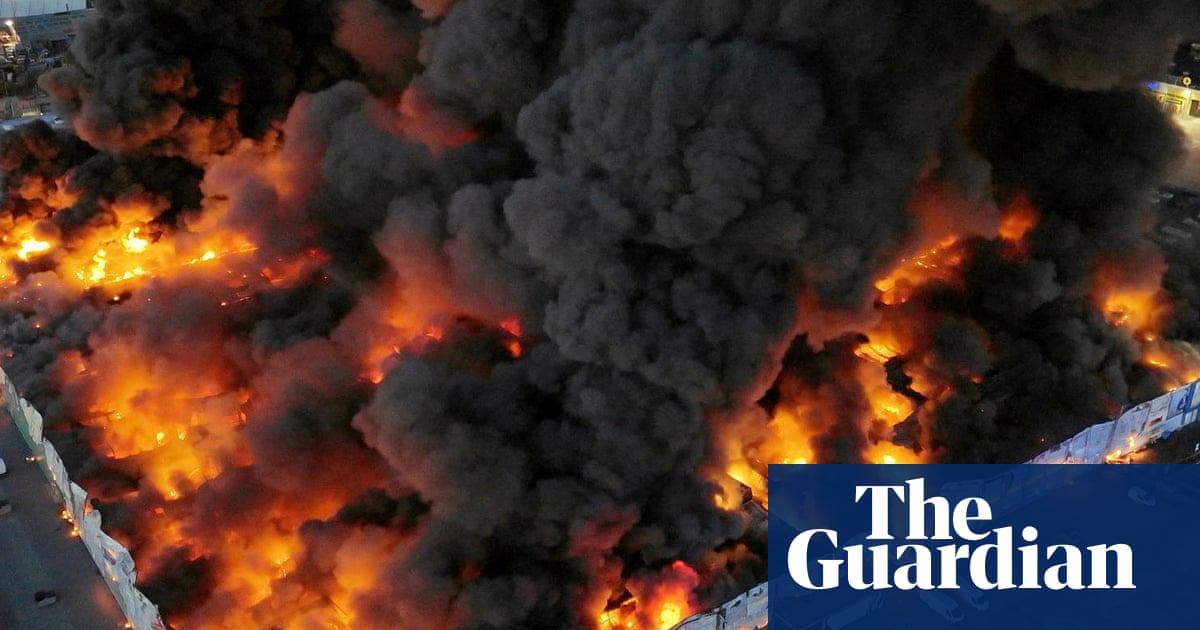Poland has said it will close down the Russian consulate in Kraków, after authorities in Warsaw announced they had found evidence proving Russia’s intelligence services were behinda huge fire that destroyed a shopping centrein the Polish capital last year.
The Polish foreign minister, Radosław Sikorski, wrote on X: “Due to evidence that the Russian special services committed a reprehensible act of sabotage against the shopping centre on Marywilska Street, I have decided to withdraw my consent to the operation of the consulate of the Russian Federation in Kraków.”
The fire, in May last year, damaged about 1,400 shops and service outlets, Polish authorities said. Sikorski said Poland would take further action if similar attacks occurred.Polish and other European intelligence services believeRussia is orchestrating a campaign of sabotage attacks in Europe, with some targets linked to the war in Ukraine but others picked at random with the aim of sowing chaos. Investigators have also linked Russia to arson attacks in Lithuania and the UK.
The Polish justice minister, Adam Bodnar, and the minister responsible for the secret services, Tomasz Siemoniak, released ajoint statementon Sunday evening that said the investigation into the fire had required “extraordinary measures”, involving 55 prosecutors and 100 police officers over a period of four months.
“Based on the evidence gathered, we know that the fire was the result of arson instructed by the Russian secret services,” the statement said, adding that the operation was “organised and directed by a specific person residing in the Russian Federation”, although it did not name the person.
Authorities said some suspects in the case had already been apprehended, while others were still being sought. They did not give any information about the nationalities of the suspected perpetrators.
Intelligence services believe Russia’s sabotage campaign is directed by staff intelligence officers in Moscow, but carried out by freelancers and one-time recruits on the ground. In the past, the perpetrators have often been Ukrainian or Belarusian refugees. Some of them realise they are working for Russian intelligence, while others may think they are simply carrying out criminal work for money.
Piotr Krawczyk, a former head of Poland’s foreign intelligence service,toldthe Guardian earlier this month: “The strategic aim is to sow discord and insecurity. They are not destroying significant infrastructure. They are concentrating on soft targets that influence a general perception of insecurity in society. This is classic psyops.”
Earlier this year, a Polish court sentenced a Ukrainian man, named as Serhiy S, to eight years in jail for planning an arson attack on a warehouse facility in the city of Wrocław. Although he did not follow through with the attack, he bought flammable items to carry it out, and Polish authorities traced the Telegram account that hired him to Russian intelligence services.
Sign up toHeadlines Europe
A digest of the morning's main headlines from the Europe edition emailed direct to you every week day
after newsletter promotion
The judge in the case, Marcin Myczkowski, when announcing his verdict, said: “The goal of the accused was to lower our morale, to question the effectiveness and competency of our state, and to question our support for Ukraine.”
Russia already has only a skeleton diplomatic presence inPolandafter a series of expulsions in recent years. In October, Poland closed the Russian consulate in the city of Poznań; Russia responded by shuttering the Polish consulate in St Petersburg. The Kraków consulate hosts Russian diplomats, and the foreign ministry in Warsaw said they had 30 days to leave.
“Warsaw continues to deliberately destroy relations, acting against the interests of its citizens,” the Russian state news agency RIA quoted Moscow’s foreign ministry spokesperson, Maria Zakharova, as saying. She promised an “adequate response” from the Russian side.
